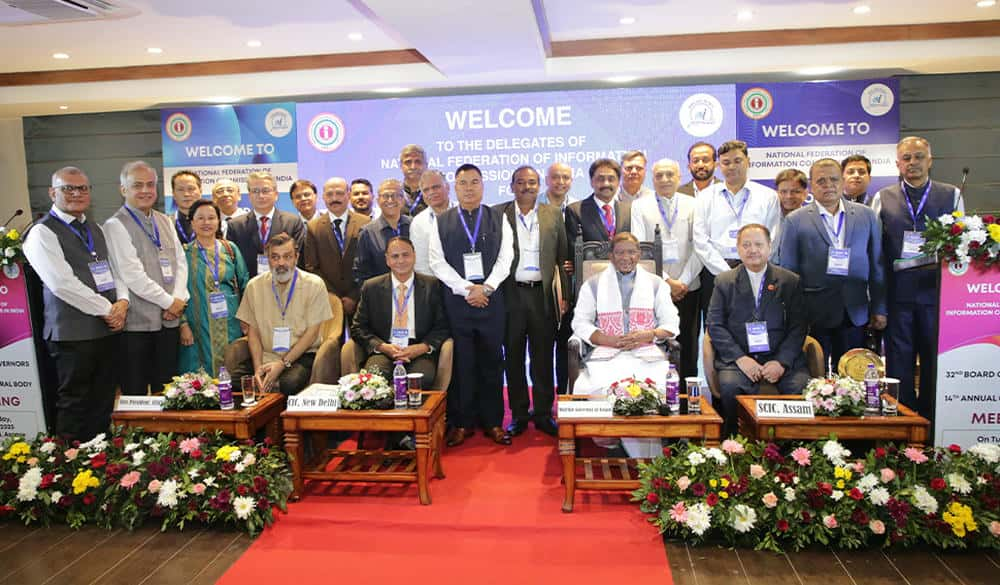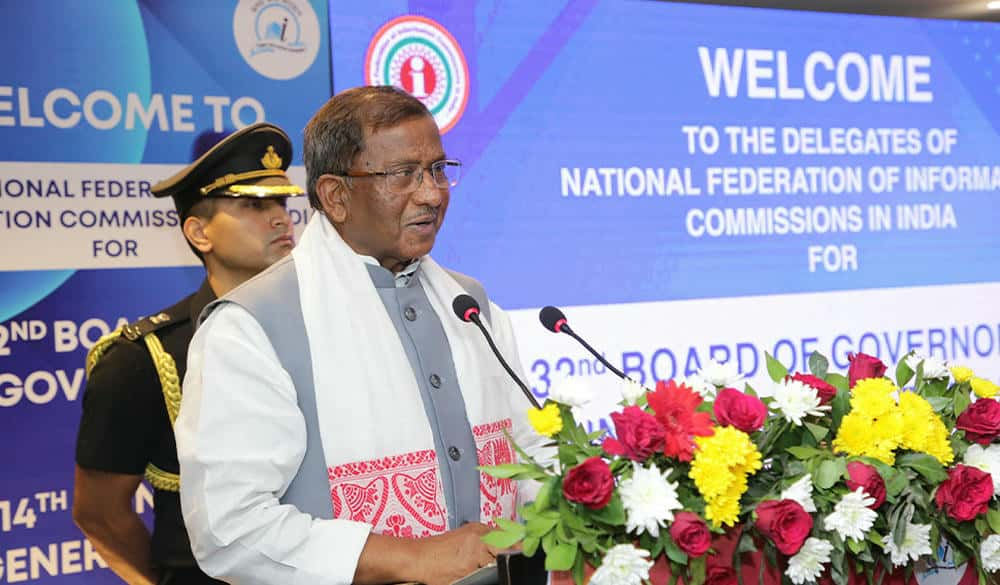RTI in the digital age: Assam Governor calls for smarter, more inclusive transparency at NFICI meet

Assam Governor Lakshman Prasad Acharya inaugurated the 32nd Board of Governors and 14th Annual General Body meeting of the National Federation of Information Commissions in India (NFICI) on Tuesday, setting the stage for a renewed national push toward smarter, more accessible governance through the Right to Information (RTI) Act.
Speaking at the gathering held in Guwahati, the Governor described the event as more than an administrative milestone—it was, he said, a celebration of India’s democratic ethos built on transparency, accountability, and citizen empowerment.
Calling the RTI Act of 2005 a “game-changer,” Acharya emphasized how it has transformed the relationship between citizens and the state. “The RTI Act acts as a bridge between the common man and governance,” he said. “It empowers every individual to ask questions, seek clarity, and participate in how the country is run.”
Acharya outlined the broad impact of the RTI Act, from reducing corruption and improving public service delivery to elevating the voices of marginalized and rural communities who have historically been sidelined. He credited the leadership of Prime Minister Narendra Modi in deepening the culture of transparency through citizen-focused schemes such as Digital India, Jan Dhan Yojana, Swachh Bharat Abhiyan, Ayushman Bharat, and PM Awas Yojana.
“Under the Prime Minister’s vision of ‘Minimum Government, Maximum Governance,’ we’re witnessing a more responsive and efficient administrative machinery,” he added. “Trust between the government and the people has grown stronger.”
However, Acharya didn’t stop at praising the progress made. He called for the modernization of the RTI framework to meet the needs of today’s digital world. “We need to make the RTI Act easier to use, more accessible, and truly transparent through digital tools,” he said. He proposed leveraging technologies like artificial intelligence and data analytics to streamline the process, reduce bureaucratic delays, and improve usability for citizens across demographics.
He stressed that RTI should evolve from a legal tool into a habit of civic engagement. “We must normalize the use of RTI at the grassroots level, empowering citizens—especially youth, women, and rural communities—to understand and use this right as part of everyday governance.”

Workshops, training sessions, and public outreach, he said, are essential to deepen public awareness and build confidence in accessing information. Acharya noted that India’s RTI model has inspired similar movements globally and should continue leading by example in digital transformation and inclusion.
The NFICI, which brings together Information Commissions from across India’s states and union territories, was lauded for its ongoing role in steering the RTI movement. This year’s meeting reaffirmed the federation’s commitment to making transparency a living principle rather than a procedural formality.
Present at the meeting were Heeralal Samariya, Chief Information Commissioner of India and President of NFICI; Tripurari Sharan, CIC of Bihar and Vice Chairman of the Federation; Bhaskar Jyoti Mahanta, State Chief Information Commissioner of Assam; and delegates from various states.
As the RTI Act approaches two decades of implementation, Tuesday’s session made one thing clear: the future of transparency lies not just in access—but in accessibility.

Leave a Reply